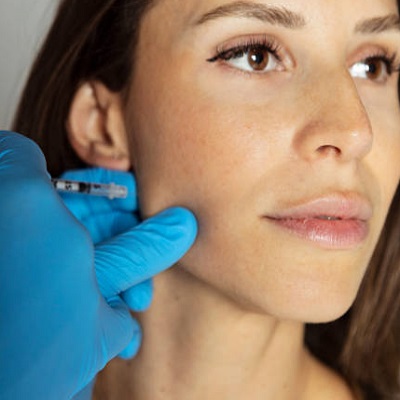
When patient plan to have jaw surgery, they usually ask frequently After jaw surgery, does the bone regenerate? Well, Bone regeneration may be a good option to restore the health and functionality of your smile if you also have gum disease and bone loss.
In this blog post, you will learn about the basics of jaw surgery, bone regeneration and what can affect the bone after the surgery. So, take a moment and read the following details.
An Overview – Jaw Surgery and Bone Regeneration:
Jaw surgery is a procedure that corrects misaligned jaws and teeth. Bone regeneration is the process of regrowing bone tissue that has been lost or damaged. In the context of jaw surgery, bone regeneration is often necessary to support the newly aligned jaw and promote healing. Techniques used for bone regeneration include bone grafting, distraction osteogenesis, and growth factor therapy.
Jaw surgery and bone regeneration are complex procedures that require careful planning and execution by a team of experienced surgeons. While they can be highly effective in correcting jaw deformities and restoring function, they do involve risks that should be carefully considered by patients.
Understanding the Healing Process after Jaw Surgery:
The initial healing stage after jaw surgery usually lasts 6 to 8 weeks. The patient could feel uncomfortable, swollen, or bruised during this time; these symptoms can be controlled with painkillers and cold packs. The patient will also need to adhere to a strict diet, which might only allow liquids or soft foods to be taken.
After that, the patient will begin a long-term healing process that can take several months to a year or more. This process involves bone regeneration and remodelling, as well as the realignment of teeth and jaw structures. During this time, the patient will need to continue following a strict diet and will likely undergo regular dental and medical checkups to monitor their progress.
Methods for Promoting Bone Regeneration:
To promote bone regeneration, multiple methods are performed. Such as:
- Bone grafting:Bone grafting involves transplanting bone tissue from another part of the patient’s body, from a donor, or from a synthetic source to the affected area to promote bone regeneration.
- Distraction osteogenesis: This involves gradually lengthening the bone by using a device that applies controlled pressure, which stimulates new bone growth.
- Growth factor therapy: This involves the use of proteins that stimulate the growth of new bone tissue.
- Low-level laser therapy: This involves the use of low-intensity lasers to stimulate bone growth.
- Nutritional supplements: Certain nutritional supplements, such as calcium, vitamin D, and magnesium, can support bone growth and regeneration.
The technique used to promote bone regeneration after jaw surgery will vary depending on the patient’s health, the extent of bone loss, and the surgical technique. Based on these considerations, an expert can recommend the best method.
Can Bone Regeneration Occur after Jaw Surgery?
Many patients frequently ask, After jaw surgery, does the bone regenerate? The answer is Yes, bone regeneration can occur after jaw surgery. It is often necessary to support the newly aligned jaw and promote proper healing.
To promote the formation of new bone tissue, procedures like distraction osteogenesis, growth factor treatment, and bone grafting can be performed. After jaw surgery, the long-term healing process involves bone remodelling and regeneration, which can take several months to a year or more. Bone regeneration can successfully restore the structure and function of the jaw with the right care and monitoring.
Factors Affecting Bone Regeneration after Jaw Surgery:
Generally, there are several factors can affect bone regeneration after jaw surgery, including:
- Patients who are in good overall health are more likely to have successful bone regeneration.
- Smoking can hinder bone regeneration by reducing blood flow to the affected area.
- Younger patients generally have a higher rate of bone regeneration compared to older patients.
- The type of bone graft used can affect the rate of bone regeneration.
- Candidates with significant bone loss may have a lower rate of bone regeneration compared to those with less severe bone loss.
- The surgical technique used can also affect the rate of bone regeneration.
- Proper compliance with postoperative care, including maintaining a strict diet and following all instructions from the medical team, can improve the rate of bone regeneration.
The Bottom Line!
Therefore, these are the methods and best ways for bone regeneration. If you are the one who has such issues after jaw surgery, feel free to visit SKN Cosmetic Clinic Islamabad. Our experts will examine your condition and recommend you a suitable treatment. So, dont wait and book your appointment with us right away!






